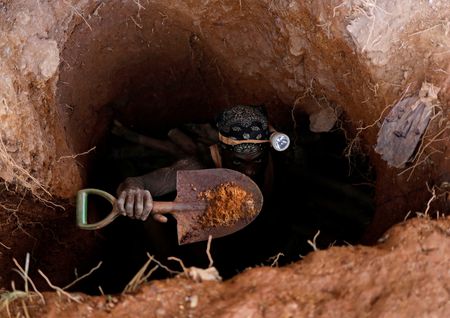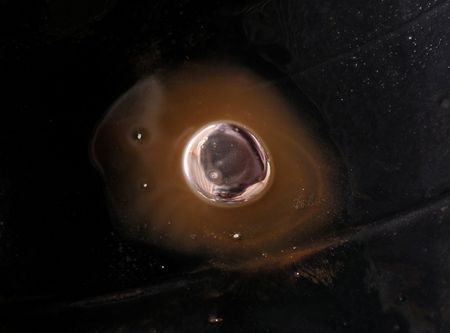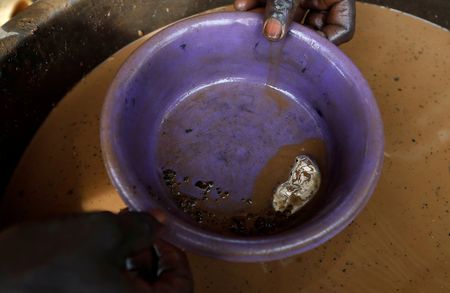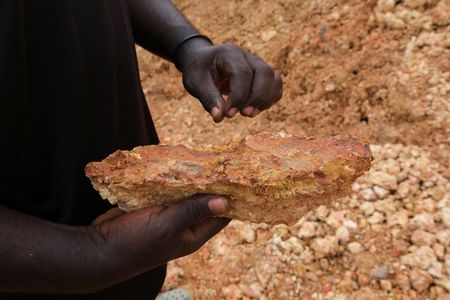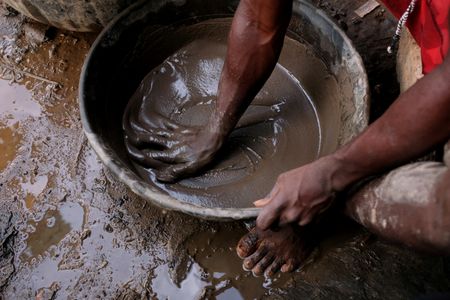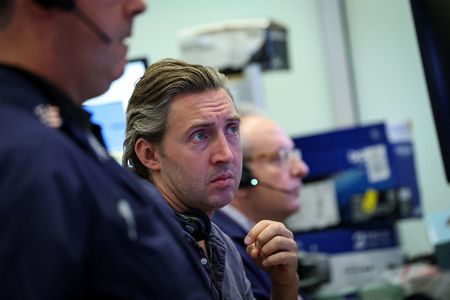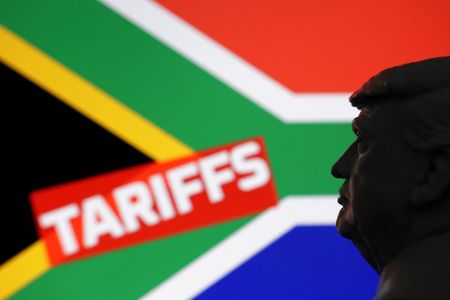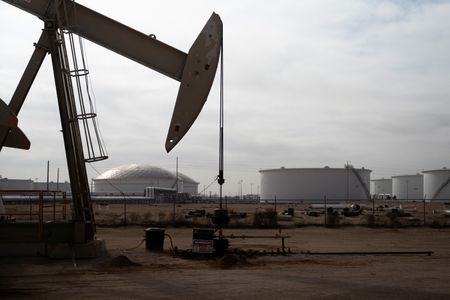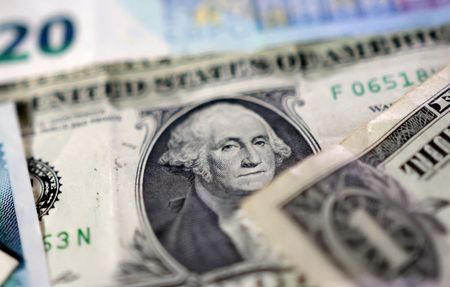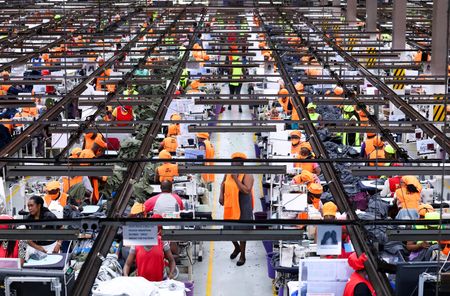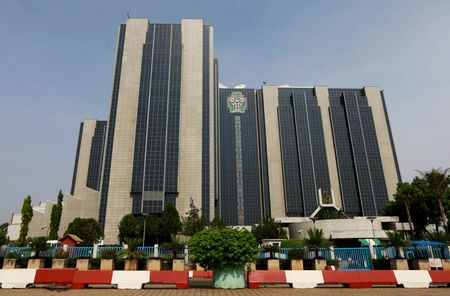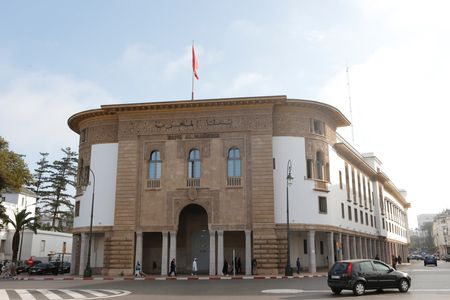By Maxwell Akalaare Adombila
DAKAR (Reuters) -A boom in artisanal gold mining in Ghana has driven mercury contamination to dangerous levels in host communities, with soil readings in some areas reaching 134 times amounts deemed to be safe, a government-backed study has found.
The report by the New York-based environmental group Pure Earth and Ghana’s Environmental Protection Authority is based on a year of samples taken from soil, water, crops and fish in six of Ghana’s 13 mining regions.
Surging bullion prices have contributed to rapid growth in the poorly regulated artisanal sector comprising small-scale gold miners, raising concerns about potential health consequences. The sector exported 66.7 metric tons in the first eight months of this year, worth $6.3 billion, compared with about 53.8 tons for the whole of 2024.
Despite Ghana’s efforts to separate fully regulated mining from illegal activity, gold flows often overlap, blurring the lines and complicating enforcement.
Researchers recorded mercury levels in soil at Konongo Zongo averaging 56.4 parts per million (ppm), far above the 10 ppm safety threshold set by the World Health Organization. Peak readings in the locality hit 1,342 ppm during the research period.
‘CUMULATIVE EXPOSURE A SERIOUS HEALTH HAZARD’
In addition to mercury contamination, arsenic levels reached 10,060 ppm, more than 4,000% above WHO guidelines, the report said.
The WHO says that high arsenic exposure can cause skin damage and kidney failure and increase the risk of lung, bladder and skin cancers through contaminated water and food.
“The cumulative exposure to this cocktail of toxic metals through multiple pathways – ingestion, inhalation and dermal contact – is a serious health hazard requiring immediate intervention,” said the report released to environmentalists and government officials at a meeting in Accra on September 18 and made available to Reuters over the weekend.
The consequences may already be apparent in some communities, said Anthony Enimil, a member of Ghana’s Pediatric Society, a child health lobby group.
“We’re seeing more children from mining areas with kidney disorders – some are now on dialysis,” Enimil said on Monday. “X-rays show mercury pellets in their bodies after accidental ingestion.”
A Ghana government spokesperson did not respond immediately to a request for comment.
Godwin Armah, General Secretary of the Ghana National Association of Small-Scale Miners, said that mercury pollution from artisanal mining will take time to address.
“We have banned the use of mercury in gold amalgamation and now use the Gold Kacha (concentrator) as a safer alternative. We are also stepping up sensitisation,” he said, referring to a simple device used by artisanal miners to separate gold.
Toxic pollution, largely from unregulated and small-scale gold mining, is prevalent across all 13 mining regions, according to environmentalists including Accra-based lobby group A Rocha Ghana.
Ghana President John Dramani Mahama has promised a crackdown on unregulated mining and established the Ghana Gold Board to oversee the sector, though critics say progress is slow and Ghanaians have staged protests demanding action against illegal mining.
(Reporting by Maxwell Akalaare AdombilaEditing by Robbie Corey-Boulet and David Goodman)

